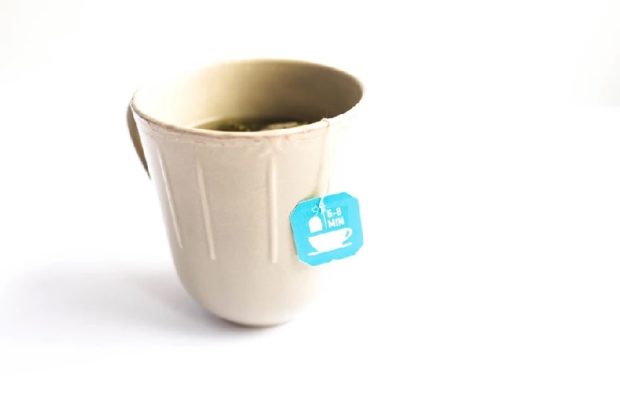
IIT study cites risk of plastic contamination in drinking tea from disposable paper cups
PTI, Nov 8, 2020, 1:45 PM IST

New Delhi: Disposable paper cups are not safe for drinking tea and a person drinking three cups of tea in them will end up ingesting 75,000 tiny microplastic particles, a study by the Indian Institute of Technology (IIT) Kharagpur, has found.
According to Sudha Goel, Associate Professor at IIT Kharagpur, who led the research, disposable paper cups are a popular choice for consuming beverages.
“Our research has confirmed contamination of the hot liquid served in paper cups due to the degradation of microplastics and other hazardous components from the lining material of the cup. Paper cups are usually lined by a thin layer of hydrophobic film which is made of mostly plastic (polyethene) and sometimes co-polymers to hold the liquid in the paper cup. Within 15 minutes this microplastic layer degrades as a reaction to hot water, ” she said.
“According to our study, 25,000 micron-sized (10 µm to 1000 µm) microplastic particles are released into 100 millilitres of hot liquid (85 – 90 degrees C) residing in the paper cups for 15 minutes. Thus, an average person drinking 3 regular cups of tea or coffee daily, in a paper cup, would be ingesting 75,000 tiny microplastic particles which are invisible to the human eye,” she added.
The researchers followed two different procedures – in the first process, hot ultrapure (MilliQ) water (85–90 degrees C) was poured into the disposable paper cups, and it was allowed to sit for 15 minutes. Goel explained that the homogeneously mixed water was then analysed for the presence of microplastics as well as additional ions that may have leached into the liquid from the paper cups.
In the second process, paper cups were initially dipped in lukewarm (30–40 °C) MilliQ water.
“Thereafter the hydrophobic film was carefully separated from the paper layer and exposed to hot MilliQ water (85–90 degrees Celsius) for 15 minutes. Changes in the physical, chemical and mechanical properties of the plastic films were examined before and after exposure to hot water. These microplastics can act as carriers for contaminants like ions, toxic heavy metals such as Palladium, Chromium, and Cadmium, and organic compounds that are similarly hydrophobic in nature thus allowing them to conveniently cross over to the animal kingdom. When ingested, the health implications could be serious,” she said.
Research scholars Ved Prakash Ranjan and Anuja Joseph studying Environmental Engineering and Management assisted Goel in the research.
Virendra K Tewari, Director, IIT Kharagpur said, “This study shows that careful consideration needs to be done before the promotion of replacements for bio-hazardous products and environmental pollutants. We have been quick to replace plastic cups and glasses with disposable paper cups.”
“While the need was crucial we have to find eco-friendly products. India has traditionally been a country promoting a sustainable lifestyle and maybe it is time that we look into our roots for corrective measures,” he added.
Udayavani is now on Telegram. Click here to join our channel and stay updated with the latest news.
Top News

Related Articles More

New Year’s greetings with an artificial but intelligent twist

Space docking experiment: Spacecraft injected into right orbit, ISRO eyes another tech feat

GSLV mission planned in January would be 100th launch from Sriharikota: ISRO chief

From Karnataka to Orbit: Adichunchanagiri SJCIT, RVCE, & Bellatrix Launch Payloads on ISRO’s SpaDEx
ISRO to demonstrate docking of satellites in space in January, launch on Monday
MUST WATCH
Latest Additions

President Droupadi Murmu hails NIMHANS for its integrated medicine services

India always stood by Maldives: EAM Jaishankar

Periya twin murder: CBI Court sentences 10 to double life imprisonment

Woman jumps out of moving autorickshaw to save herself from drunk driver

New day, same story: ‘King’ Kohli fails again; India collapse to 185
Thanks for visiting Udayavani
You seem to have an Ad Blocker on.
To continue reading, please turn it off or whitelist Udayavani.




















